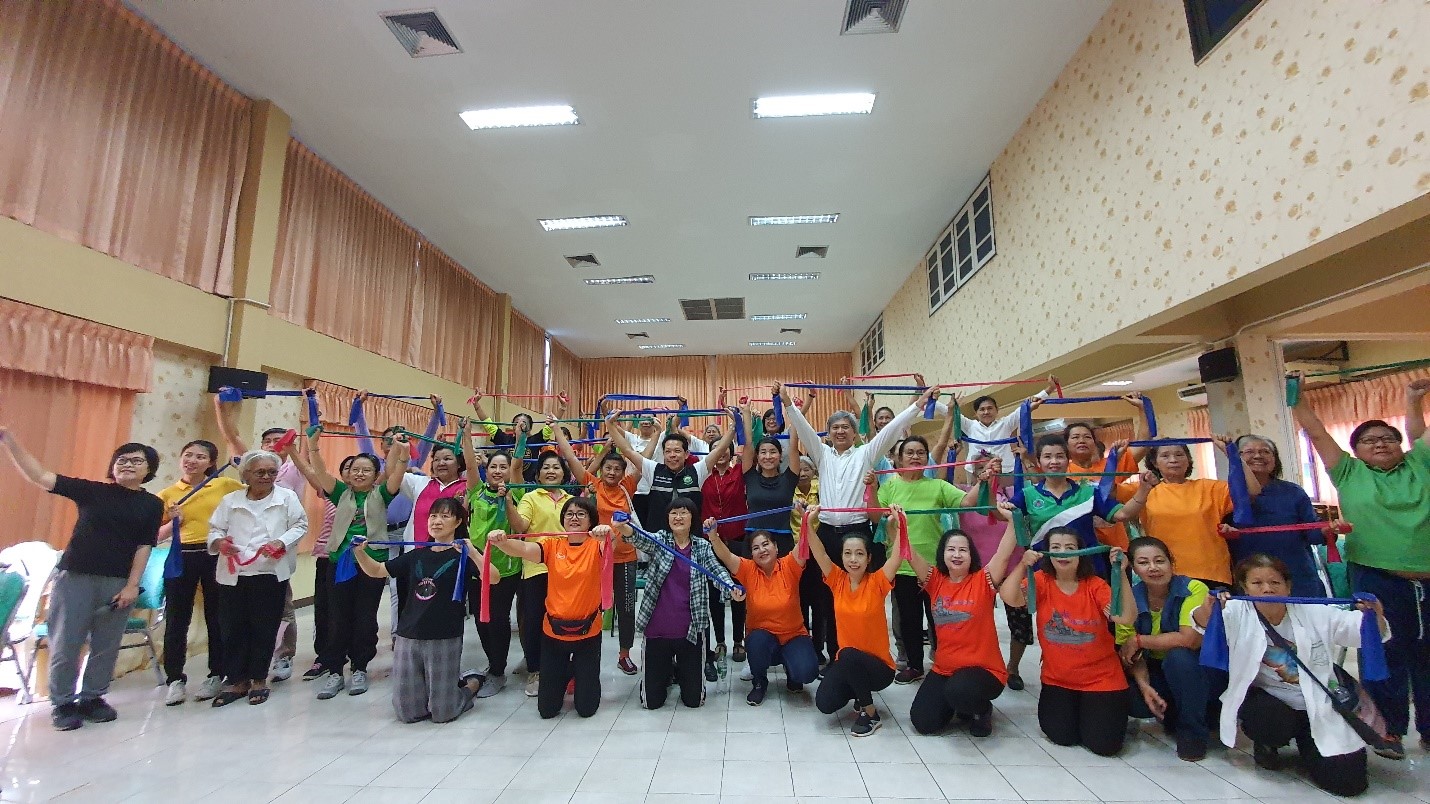Research
Researchers with different backgrounds such as gerontology, epidemiology, social science, political science, global health, medicine, nursing, and public health constitute DIHAC study team. DIHAC study members are active in the publication, program implementation, analysis and meeting. This page will update the papers, reports and media to share our research.
Press release in 2023
Prevention-based new model of long-term care strengthening family caregivers and investing in healthy ageing.
The population around the world are ageing very fast, in low and middle incomed countries where access to formal long term care services is not yet possible and families remain as main care giver. The demand is growing in terms of health care and the cost. Community integrated intermediary care (CIIC) model introduced prevention-based new model of long-term care which is the integration of formal and informal care. World Health Organization Centre for Health Development (WHO Kobe center) funded the community integrated intermediary care (CIIC) trial. It is expected that prevention-based, new model of long-term care will help shaping health systems’ response to population ageing in many countries. The study was led by Associate Professor Myo Nyein Aung, Department of Global Health Research, Juntendo University and conducted in Chiang Mai, Northern Thailand. The CIIC model was proven effective with a reasonable cost, and ready to be scaled up. The you tube explainer was published by (WHO Kobe center)
New Publication, 2022 Feb 1
Principle investigator (PI) of DIHAC study Dr. Myo Nyein Aung published an article in the Gerontologist in February 2022, issue1, volume 62.The title of the article is “Age-Friendly Environment and Community-Based Social Innovation in Japan: A Mixed-Method Study” The article is initial report of the Community Based Social Innovation (CBSI) for healthy ageing in Japan. Pathways to the quality of older people’s life were reported from the integrated results of structural equation model and qualitative analysis. CBSIs were classified, functionally into CBSI1, “exercise activity”, and CBSI2, “social and cultural activities such as Kizuna saloons”. Mainly the article reported how older community residents interacted with the age-friendly environment in Japanese communities. In addition, typology and delivery models were discussed in the article referring to the framework of WHO, for global implication of Japanese experiences in healthy ageing. Juntendo University had press release about this study and article in last November 2021 when advanced publication was released by the Gerontologist in open access.

Photo: Members of Sunflower Saloon showing their “Haiku “poem book. Sunflower saloon is a Kizuna saloon that was established twenty years ago for social participation of older persons.
Article Press release JP
New Publication, 2022 Jan 27
Pre-print of the new publication of Dr. Myo Nyein Aung, PI of DIHAC study is now in Research Square. Title of the article is “Effectiveness of Community Integrated Intermediary Care (CIIC) Service Model to Enhance Family-Based Long-Term Care for Thai Older Adults in Chiang Mai, Thailand: A Cluster Randomized Controlled Trial TCTR20190412004”. It is being peer-reviewed for the journal, BMC Health Policy and System.
It is implementation research, a cluster randomized controlled trial funded by the World Health Organization Centre for Health Development (WHO Kobe Centre). Department of Health Service Support, Ministry of Health, Thailand, and Chiang Mai Rajabhat University, Thailand collaborated with Juntendo University in the study. The intervention is an innovative, long term care model which is expected to be the model for universal access to long term care in Thailand and countries with similar contexts. Many countries with rapid population ageing still do not have a system for long-term care or programs in place. CIIC is a new model that can integrate primary health care, long term care and health promotion for the communities in such setting. It is expected to contribute to the global response in health systems towards healthy ageing communities, in the era of COVID-19 pandemic and post pandemic new-normal.

Photo: Training of the community volunteers to become trainers who will lead community care prevention group exercise , at CIIC study site, Chiang Mai, Thailand
Protocol Article Research Project WHO Research Project WHO JP
